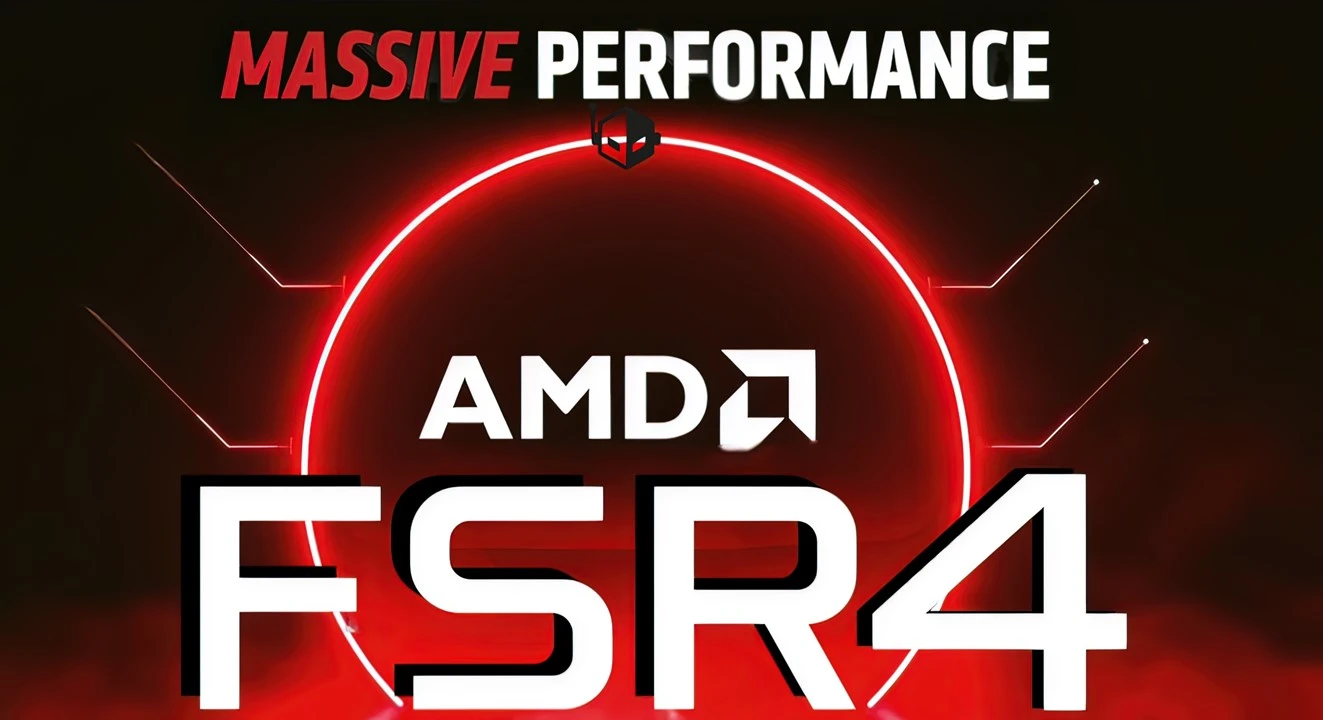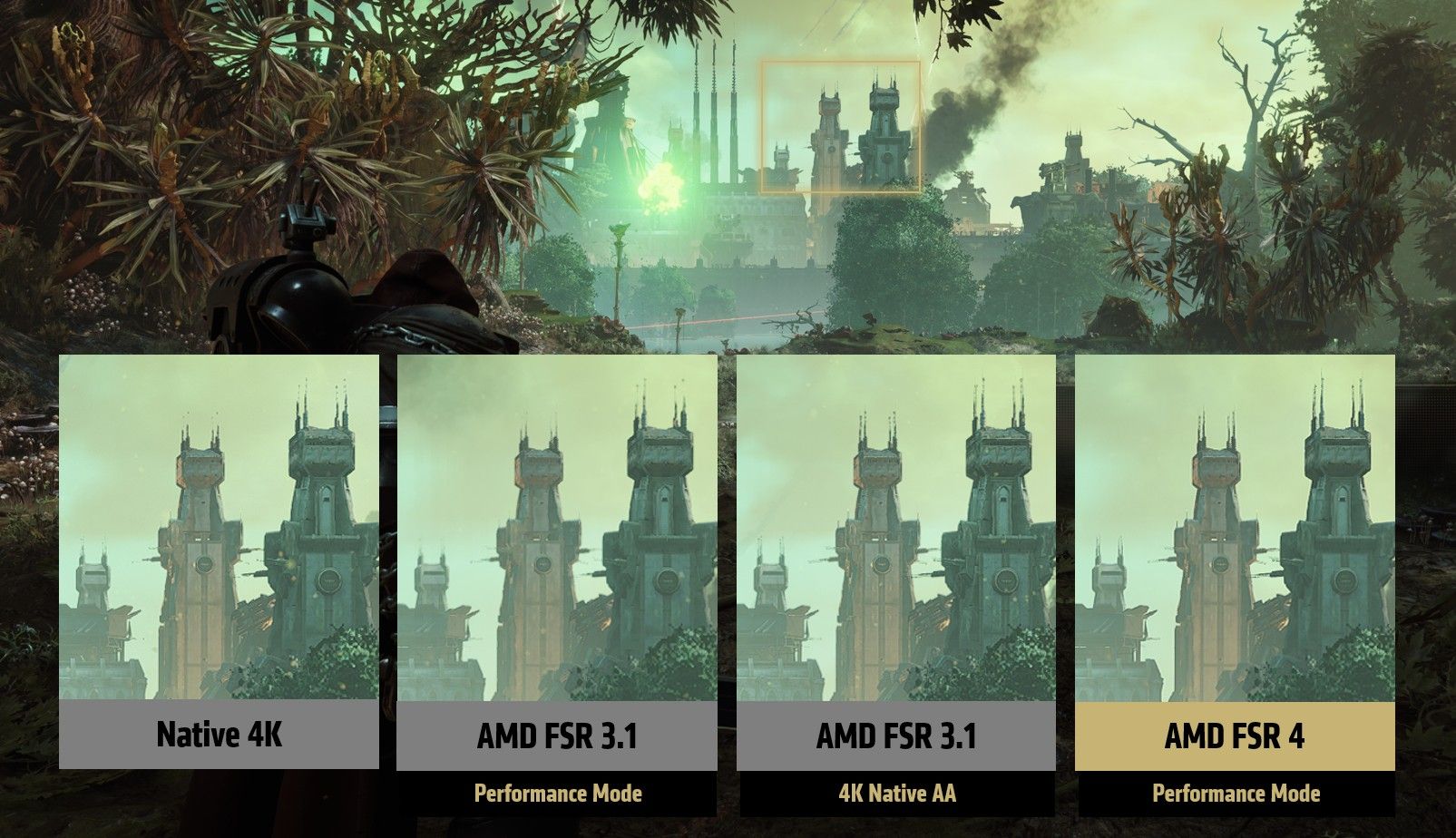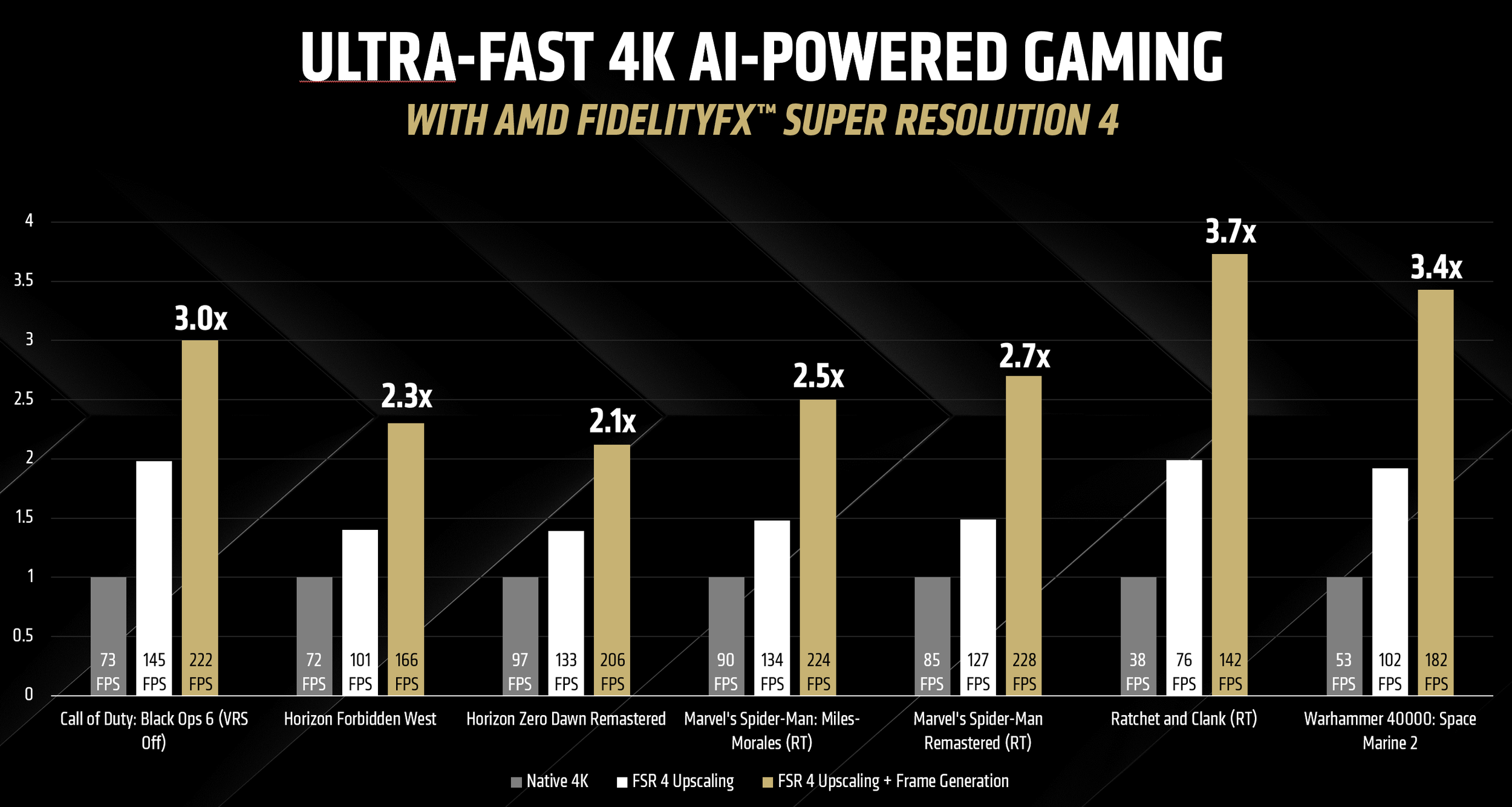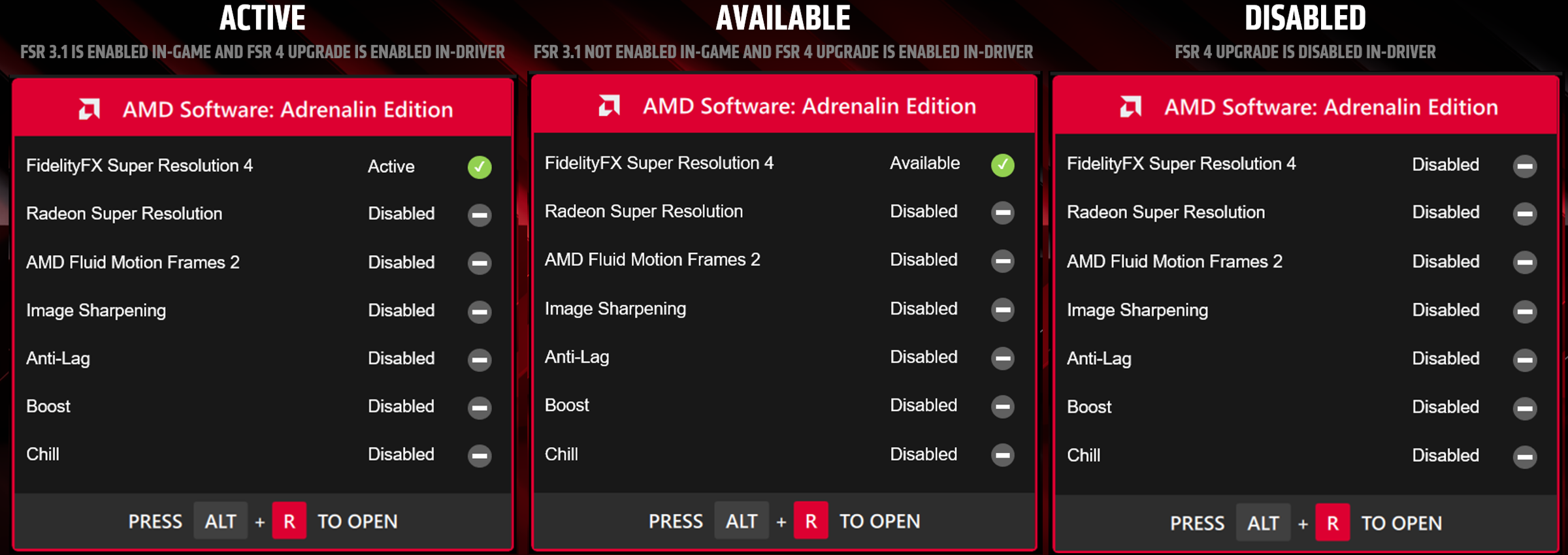AMD FSR 4: The AI-Powered Upscaling Revolution Coming to RDNA4
Introduction
AMD is set to revolutionize gaming visuals with the launch of FidelityFX Super Resolution 4 (FSR 4), its most advanced upscaling technology yet. Exclusive to the upcoming Radeon RX 9000 series based on RDNA4 architecture, FSR4 represents AMD's full embrace of machine learning for image reconstruction, promising significant improvements in both performance and visual quality :cite[1]:cite[3].

AMD claims FSR4's Performance Mode at 4K offers better quality than FSR3.1's Native AA mode
Launching with support for 30+ games and expanding to 75+ titles by year's end, FSR4 marks a strategic shift for AMD. Unlike previous versions that worked across multiple GPU generations, FSR4 leverages RDNA4's dedicated AI accelerators to deliver what AMD promises will be "better than native" image quality in 4K gaming :cite[3]:cite[5].
Key Features & Technological Advancements
1. AI-Powered Upscaling: A First for AMD
FSR4 represents AMD's first foray into ML-based upscaling, joining competitors NVIDIA and Intel in using artificial intelligence for image reconstruction. The technology utilizes a custom hybrid FP8 AI model trained on AMD Instinct hardware, requiring the advanced AI capabilities of RDNA4 GPUs which offer up to 1557 TOPS of AI performance :cite[3]:cite[6].

RDNA4's AI accelerators power FSR4's machine learning capabilities
2. Enhanced Image Quality & Stability
Early demonstrations show FSR4 delivering reduced ghosting, improved temporal stability, and better preservation of fine details compared to FSR 3.1. AMD specifically highlighted Warhammer 40K: Space Marine II as a title where FSR4's Performance Mode at 4K surpasses FSR3.1's Native AA mode in image quality :cite[3]:cite[5].
3. New Quality Presets & Compatibility
FSR4 introduces several technical improvements:
- No Ultra Performance mode - Lowest setting is Performance (2x upscaling)
- Native AA mode - Applies anti-aliasing without upscaling
- Requires FSR 3.1 foundation - Only works in games with FSR 3.1 support
- Manual toggle via AMD Software or HYPR-RX one-click preset :cite[1]:cite[4]

FSR4 can be enabled through AMD Software's interface or HYPR-RX
Community Reactions
"If FSR4 finally fixes the shimmering and ghosting issues that plagued previous versions, it could actually compete with DLSS. The exclusive RDNA4 requirement is disappointing for current AMD users, but might be necessary for true quality parity."
"The game support list is impressive at launch, but NVIDIA still has a massive lead in titles supporting DLSS. AMD needs to push harder for day-one implementations in major AAA releases."
Launch Titles & Game Support
AMD has secured FSR4 support in a strong lineup of launch titles, including several high-profile AAA games and anticipated releases. The technology will be available in over 30 games at launch, with 75+ titles expected by the end of 2025 :cite[1]:cite[5].
Notable Launch Titles:
- Call of Duty: Black Ops 6 (Multiplayer only at launch)
- Marvel's Spider-Man 2 (PC version)
- Horizon Forbidden West Complete Edition
- God of War: Ragnarök
- Ratchet & Clank: Rift Apart
- The Last of Us Part I
- Warhammer 40,000: Space Marine 2
- Kingdom Come: Deliverance II (Post-launch update)
AMD is working with major studios including Activision, Guerrilla, Insomniac, Naughty Dog, and SEGA to expand FSR4 adoption. The company notes that any game with FSR 3.1 support can potentially be updated to FSR4 through a simple .dll file swap :cite[3]:cite[5].
Technical Requirements & Compatibility
Unlike previous FSR versions that worked across a wide range of hardware, FSR4 has specific requirements:
Hardware Requirements:
- Exclusive to RDNA4 GPUs (Radeon RX 9000 series)
- Requires AMD Software: Adrenalin Edition 25.3.1 or newer
- Not compatible with RDNA3 or older architectures
Software Requirements:
- Game must have FSR 3.1 implementation
- Windows 10/11 (64-bit)
- DirectX 12 or Vulkan API
AMD justifies the hardware exclusivity by noting FSR4's heavy reliance on AI accelerators unique to RDNA4. The RX 9070 XT offers double the AI performance of the previous-gen 7900 XT, making older cards incapable of running FSR4 effectively :cite[3]:cite[6].
How FSR4 Compares to the Competition
AMD faces stiff competition from NVIDIA's DLSS and Intel's XeSS in the upscaling arena. Here's how FSR4 stacks up:
| Feature | AMD FSR4 | NVIDIA DLSS4 | Intel XeSS |
|---|---|---|---|
| AI Acceleration | Yes (RDNA4 only) | Yes (RTX 20+) | Yes (Arc/Xe+) |
| Frame Generation | Yes | Yes | No |
| Native AA Mode | Yes | Yes | No |
| Hardware Requirements | RX 9000 only | RTX 20+ | DP4a/XMX |
While DLSS maintains broader hardware compatibility (working on RTX 20-series and newer), AMD argues that FSR4's RDNA4 exclusivity allows for superior image quality by fully utilizing the architecture's AI capabilities :cite[3]:cite[7].
Future Outlook & Potential Updates
AMD has hinted that FSR4 might eventually come to RDNA3 GPUs through optimizations, though no timeline has been provided. Frank Azor, AMD's chief architect of gaming solutions, stated: "We may be able to optimize it to work on RDNA3 architecture. And we are, we want to do it, but we have work to do for now." :cite[7]

AMD's graphics technology roadmap showing FSR4 integration
Looking ahead, AMD plans to continue developing both FSR4 and FSR3 in parallel, with FSR3 remaining available for older hardware. The company is also working on Fluid Motion Frames 2.1 and other AI-powered features that complement FSR4's capabilities :cite[4].
Conclusion: Is FSR4 Worth the Upgrade?
FSR4 represents a major leap forward for AMD's upscaling technology, finally embracing AI acceleration to compete with NVIDIA's DLSS. However, its success depends on several factors:
- Image quality improvements over FSR3.1 in real-world usage
- Adoption rate among game developers
- RX 9000 series pricing and availability
- Potential expansion to RDNA3 hardware
For early adopters of RDNA4 graphics cards, FSR4 promises to deliver the best AMD upscaling experience yet, with particular benefits for 4K gamers seeking both performance and visual fidelity. Whether it can truly challenge DLSS's dominance remains to be seen when independent reviews become available.
AMD's FSR4 launches alongside the Radeon RX 9070 series on March 6, 2025, with game support expanding throughout the year. Will you be upgrading to experience FSR4? Let us know in the comments!
Comments
Login to post a comment.
No comments yet. Be the first to comment!